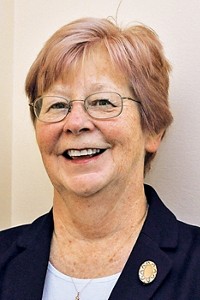Advertisement
Grab your lab coat. Let's get started
Welcome!
Welcome!
Create an account below to get 6 C&EN articles per month, receive newsletters and more - all free.
It seems this is your first time logging in online. Please enter the following information to continue.
As an ACS member you automatically get access to this site. All we need is few more details to create your reading experience.
Not you? Sign in with a different account.
Not you? Sign in with a different account.
ERROR 1
ERROR 1
ERROR 2
ERROR 2
ERROR 2
ERROR 2
ERROR 2
Password and Confirm password must match.
If you have an ACS member number, please enter it here so we can link this account to your membership. (optional)
ERROR 2
ACS values your privacy. By submitting your information, you are gaining access to C&EN and subscribing to our weekly newsletter. We use the information you provide to make your reading experience better, and we will never sell your data to third party members.
Policy
Career Resources
by Linda R. Raber
November 7, 2005
| A version of this story appeared in
Volume 83, Issue 45
Finding a job is hard work. Various print and online resources can help point job seekers in the right direction and offer valuable information on identifying and marketing your skills, preparing rsums, and going on interviews.
If youre an American Chemical Society member looking for a job, signing up at cen-chemjobs.org is a good place to begin. At chemjobs.org, you may post your rsum on an online database. This simplifies applying for jobs listed online, and employers can search the database for rsums of good candidates for their open positions.
In addition to rsum posting, ACS members who register at chemjobs.org can search for job leads from exclusive ChemJobs listings, as well as search through the classified ads from the four most recent weeks of C&EN. The ChemJobs site also offers you the option of creating a search agent that will notify you when it finds positions matching your qualifications.
Among the more valuable services available on chemjobs.org is the collection of career-related articles that illustrate different career pathways, offer nuts-and-bolts advice on writing resumes, and analyze various ACS salary surveys.
The ACS Career Consultant Program is also operated through ChemJobs. This service, which is available to ACS members, assists chemists at all career stages, from helping with first jobs to advising mature career chemists who are entering retirement but wanting to remain professionally active. Career consultants are ACS member volunteers. Since its inception in 1989, the program has helped more than 4,000 ACS members.
The ACS Career Services Department offers a full suite of publications for todays chemist in career transition. A particularly popular service is the ACS Salary Comparator. The comparator is available for ACS members to find out how their salaries measure up to standards for various jobs throughout their fields at various educational levels.
Advanced career development tools are also offered by ACS Career Services via chemistryjobs.acs.org/careerdev. Resources available on this site include information on professional career coaches available for hire and behavioral assessments and analyses. Full information on all of these programs is available at chemistry.org/careers.
C&EN classifieds are used by many savvy chemical scientists to locate jobs in industry, academe, and government arenas. Employment ads are in the back of every issue of Chemical & Engineering News, the ACS newsweekly. Employment advertisers are charged an additional fee to post job ads online at cen-chemjobs.org.
In addition, ACS members may also place ads for low or no cost; this unique membership service gives ACS members an opportunity to get employers attention in the U.S.s leading publication for chemists.
Science's Next Wave, a program of the American Association for the Advancement of Science (AAAS), is available to ACS members who register at chemjobs.org. This weekly online publication focuses on career development for scientists–from undergraduates to faculty members and career scientists.
AAAS also offers a comprehensive career website. Check it out at www.sciencecareers.org. You do not need to be a member of AAAS to access most of its career services, including its salary comparator.
Alternative Careers in Science: Leaving the Ivory Tower, 2nd Edition, by Cynthia Robbins-Roth (Elsevier Academic Press, 2006). This book introduces the reader to scientists who evolved into Wall Street analysts, science policy gurus, patent agents, journalists, consultants, biopharmaceutical company executives, entrepreneurs, executive search specialists, public relations experts, and sales reps. New chapters cover careers in intellectual property, medical consulting, university technology transfer, venture capital, publishing, and biomedical consulting.
Guide to Nontraditional Careers in Science, by Karen Young Kreeger (Taylor & Francis, 1998), is a practical guide to evaluating and finding career opportunities in nonacademic research fields. It demonstrates ways in which people can use their scientific training for a satisfying professional life.
Career Management for Scientists and Engineers, by John K. Borchardt (ACS, 2000), contains many examples of properly adapted rsums and interview techniques, as well as plenty of practical advice about adaptation to new workplace cultural paradigms such as team-based management.
Put Your Science to Work: The Take-Charge Career Guide for Scientists, by Peter S. Fiske and Aaron Louie (American Geophysical Union, 2001), is revised and updated from Fiskes To Boldly Go: A Practical Career Guide for Scientists. The new edition offers practical advice and techniques for finding traditional and nontraditional science careers, including sample rsums and cover letters, as well as stories of scientists who have moved into second careers.
Career Renewal: Tools for Scientists and Technical Professionals, by Stephen Rosen and Celia Paul (Academic Press, 1997). Written for those suffering from career burnout or considering a career change, this book describes the stories of real-life career-changers and offers career assessment exercises.
The 2006 What Color Is Your Parachute? A Practical Manual for Job-Hunters And Career-Changers, by Richard Nelson Bolles and Mark Bolles (Ten Speed Press, 2005), is scheduled to be released by the publisher this week. The updated guide helps readers determine their ideal job. This year, the book focuses on the rising problem of unemployment in the current economy. It offers new techniques to help job seekers find meaningful work.
Career Management for Chemists, by John Fetzer (Springer Verlag, 2004), provides commonsense guidance on key career topics such as rsums, networking, and maintaining technical knowledge. The books origins lay in Fetzers monthly column, Building Professional Careers in Chemistry, which runs in the journal Analytical & Bioanalytical Chemistry.
Occupational Outlook Handbook 2004–2005 by the U.S. Department of Labor. Compiled every two years, this book describes a wide range of occupations, including what workers do on the job, working conditions, training and education needed, earnings, and expected job prospects. The book is available free on the Internet at www.bls.gov/oco.
The Directory of Executive Recruiters 2005–2006: The Most Comprehensive Resource of Executive Search Professionals Available, by Kennedy Information. Dubbed the Red Book, this annually updated reference lists recruiters by industry, expertise, and geographic region. Those seeking executive positions can easily identify headhunters who can best match their skills and interests to job openings.
Careers in Biotech & Pharmaceuticals: The WetFeet Insider Guide, 2005 Edition (Wetfeet Inc., 2004) gives the latest forces driving these industries, profiles of top-ranked companies, and profiles of people currently working in these industries. It includes information on the recruiting process and specific tips for landing a job.





Join the conversation
Contact the reporter
Submit a Letter to the Editor for publication
Engage with us on Twitter